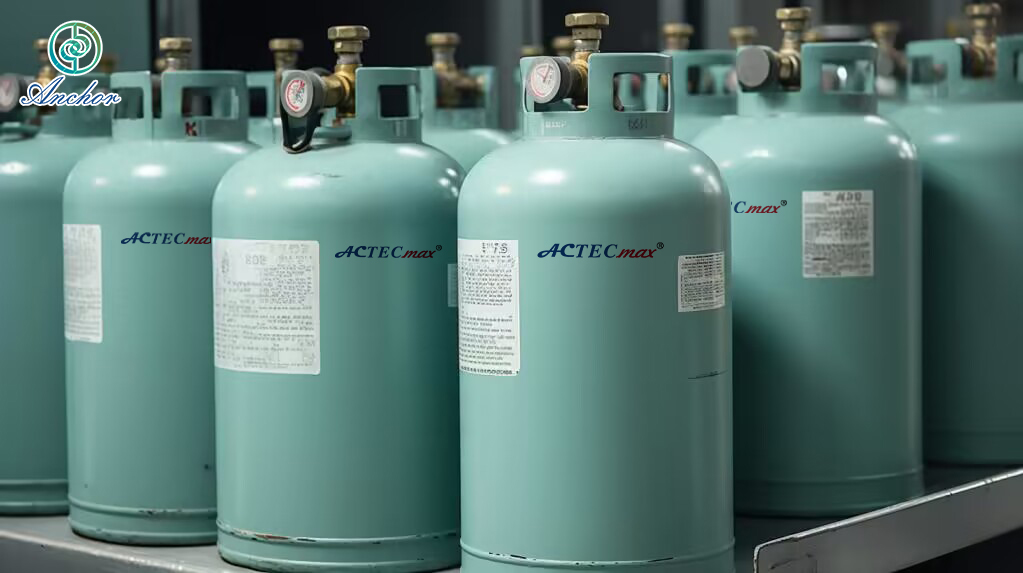R134a and R1234yf are both refrigerant gases used in automotive air conditioning systems, but they have different properties and characteristics.
Anchor Auto Parts Group
R134a (also known as HFC-134a) is a hydrofluorocarbon refrigerant that has been widely used in automotive air conditioning systems for many years. It has a boiling point of -26.3°C and a GWP of 1,430, which is relatively high compared to other refrigerants. R134a is an effective refrigerant, but due to its high GWP, it is being phased out and replaced by more environmentally friendly alternatives.
R1234yf (also known as HFO-1234yf) is a hydrofluoroolefin refrigerant that has a much lower GWP than R134a. It has a boiling point of -29.8°C and a GWP of 4, which is significantly lower than R134a. R1234yf is designed to be a drop-in replacement for R134a in automotive air conditioning systems, and offers similar performance and efficiency. It is considered to be much more environmentally friendly than R134a, as it has a much lower impact on global warming.
While R1234yf is a more environmentally friendly refrigerant than R134a, it is also more expensive and requires different equipment and handling procedures. As a result, some automotive manufacturers continue to use R134a in their air conditioning systems, while others have made the switch to R1234yf.
R134a and R1234yf are both refrigerant gases used in automotive air conditioning systems, but R1234yf is considered to be a more environmentally friendly alternative due to its lower GWP. However, the choice of refrigerant depends on the manufacturer’s specifications and requirements.
If you need to purchase auto parts for your vehicle, you may want to consider contacting Anchor Auto Parts Group. They are a reputable provider of high-quality auto parts and accessories, and can assist you in finding the right parts for your specific make and model.
Related Resource
https://myjackfrost.com.au/car-air-conditioning/r134a-gas-vs-r1234yf-gas/










+ There are no comments
Add yours